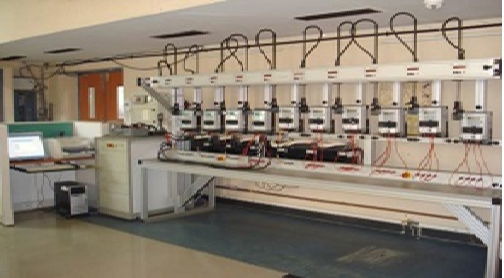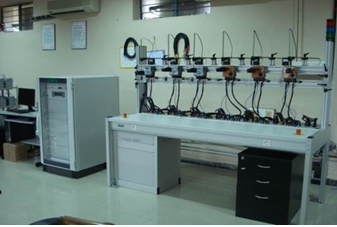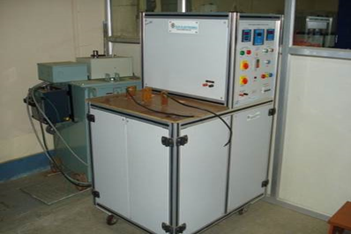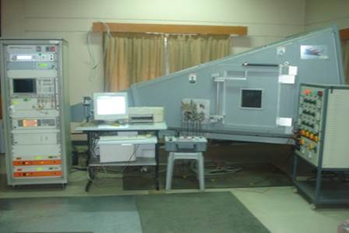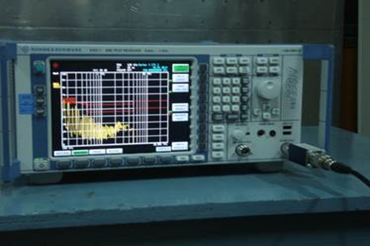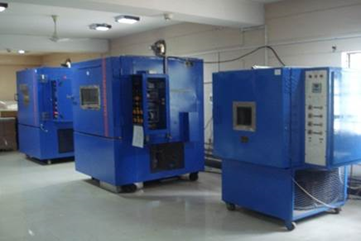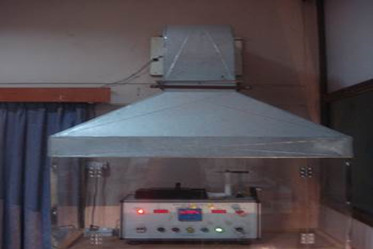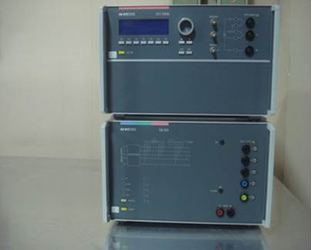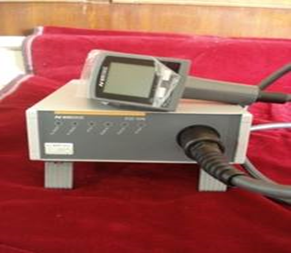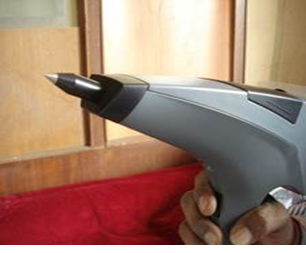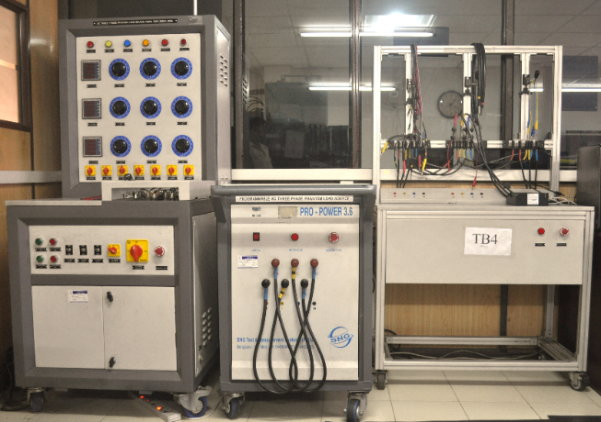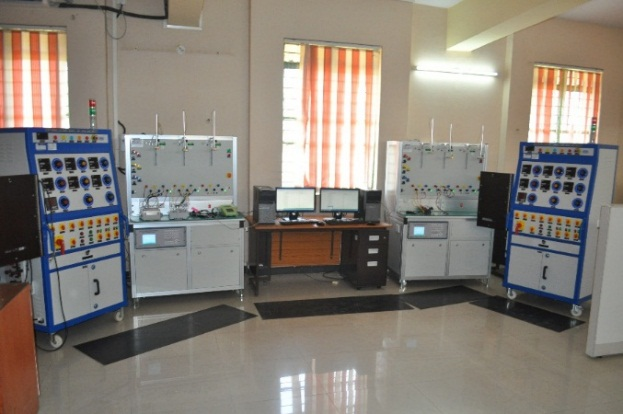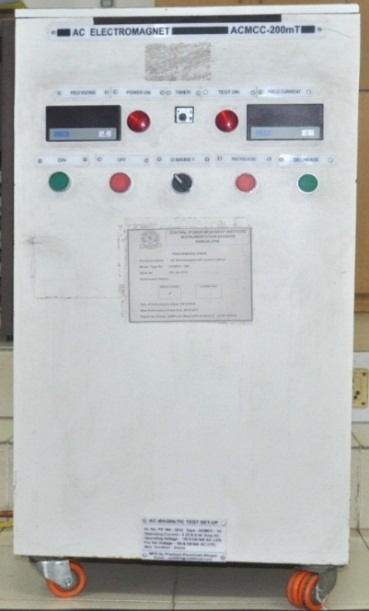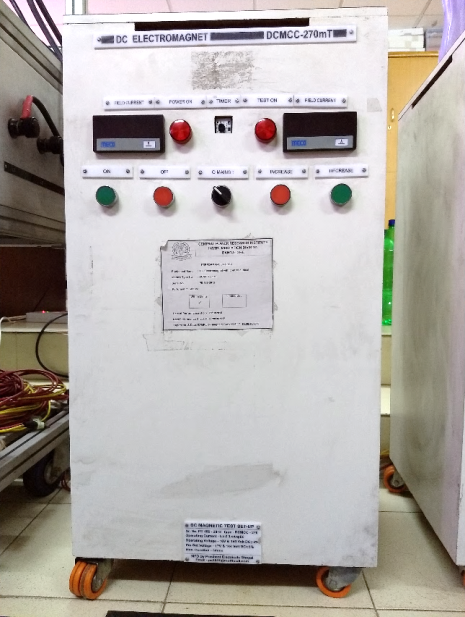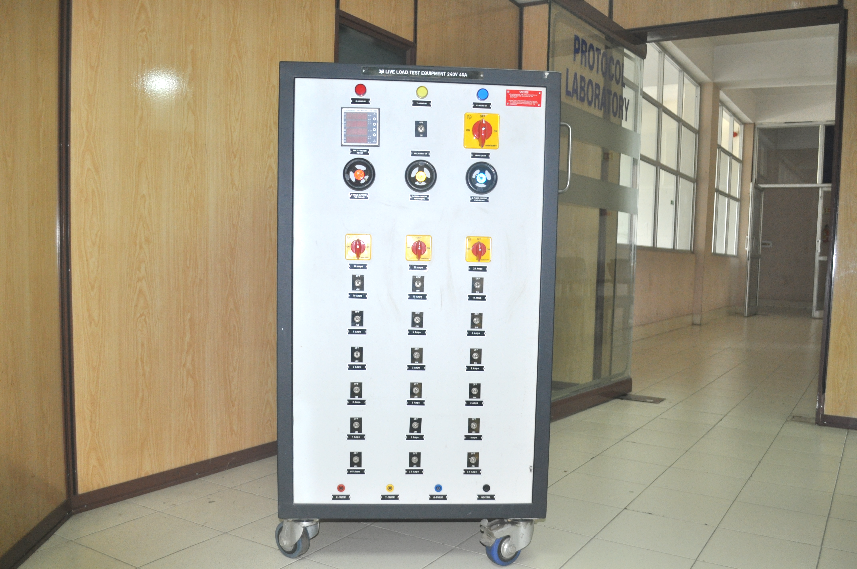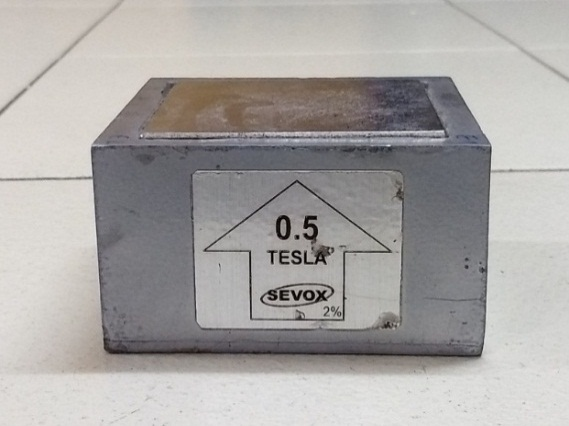Energy Meter Testing Laboratory
Accurate billing of the consumed power is important not only to the utilities but also to the consumers. It is therefore, doubly important that the meters used for recording energy consumption shall be accurate and reliable, which calls for compliance of meters to specified standards. Therefore, the utilities and meter manufacturers need to ensure compliance and desirable quality of supplies. CPRI on its part facilitates in the task of achieving quality through its Energy Meter Testing Laboratory. This laboratory undertakes “Type Testing” of Static & Smart meter of accuracy class 0.2 to 2.0 as per National/International standards and also carry out performance test of sub-standard meters. Besides Type testing, the EMTL do carry out DLMS Protocol testing, Acceptance test and Routine tests and Tamper simulations tests as per National/International standards and as per the utility requirement.
CPRI has setup the comprehensive Energy meter test facility to cater the needs of manufacturer and Power Utilities. The laboratory is equipped with the state-of-the-art technology high accuracy and high precision test equipment/systems, which meets the requirements of International standards. The accuracy testing is carried out on fully automated system. The lab provides test facilities for Static and Smart single-phase/three-phase energy meters and Trivector meters. Multifunction meter, TOD, ABT meters etc.
Our testing facilities are extensively used by utilities and meter manufacturers. The energy meter testing facility is also extended for developmental assistance as a measure to help the manufacturer to improve and ensure their specified function before arriving at their final product.
The EMTL provides comprehensive testing for meters as per the following National/International standards with the latest amendments.
- IEC62052-11:2020-General requirements, tests and test conditions Part 11: Metering equipment
- IEC 62053-21:2020-Static meters for active energy (class 1 and 2).
- IEC 62053-22:2020-Static meters for active energy (class 0.2 S and 0.5 S)
- IEC 62052-23: 2020-Static meters for reactive energy (class 2 and 3)
- IS 13779:2020 - ac Static WH meters - Class 1 and 2
- IS 14697:2021 - ac Static Transformer operated WH and VARH meters Class 0.2S, 0.5S & 1.0S (Amendment No.1)
- CBIP Report No.304 - Standardization of AC Static Electrical Energy Meters.
- CBIP Research Publication No. 325 - CBIP guide on Static Energy meter specifications & Testing
- IS15884:2010: a.c. direct connected static prepayment meters for active energy (class 1 & 2)
- IS16444:2015: a.c. Static direct connected watthour Smart Meter class 1 & 2 - specification
- IS 15959 (Part 1): 2011 - Data exchange for electricity meter reading, tariff, and load control - Companion specification (Part 1 for Static Energy Meters).
- IS 15959 (Part 2): 2016 - Data Exchange for Electricity Meter Reading, Tariff and Load Control - Companion Specification Part 2 Smart Meter as part of IS 16444 (Part 1): 2015.
- IS 15959 (Part 3): 2017 - Data Exchange for Electricity Meter Reading, Tariff and Load Control - Companion Specification - PART 3 Smart Meter (TRANSFORMER OPERATED KWH AND KVARH, CLASS 0.2 S, 0.5 S AND 1.0 S) as part of IS 16444 (Part 2): 2017.
The major equipment for Energy Meter testing at CPRI are:
i. Multi position Fully Automatic meter test benches with 0.05 & 0.02 class Ref. meters.
ii. Static source capable of testing meters upto 200A
iii. Precision Reference energy standards of class 0.05, 0.02 and 0.1.
iv. Surge Generator(7kV).
v. Surge Generator (10 kV).
vi. EMI/EMC test set up comprising of: -
- GETM Cell based RF immunity Test system
- RF EMI Receiver
- EFT Generator
- Surge Generator
- ESD Generator (upto 30kV)
vii. Glow wire Apparatus.
viii. Climatic Chamber (Dry/Cold/Humidity).
ix. AC/DC magnetic Coils.
x. Short time over current Set up
All supporting and allied test equipment for full type tests and tamper simulation tests.
The following tests can be carried outas per National and International Standards.
- Tests of Insulation Properties Tests of Accuracy Requirements
- Tests of Electrical requirement.
- Tests of Electromagnetic Compliance
- Tests of Climatic requirement.
- Tests of Mechanical requirement.
- Verifications / tamper simulation-
- Third party inspections of energy meters (as per Tender specifications of utilities)
EMTL also provides consultancy services in the following areas:
Clientele:
EMTL offers credible and quality service which is being extensively availed by Power utilities in India, Energy meter manufacturers based in India and abroad. Foreign customers from Bangladesh, China, Turkey and Sultanate of Oman have availed our services.
DLMS Protocol Testing
The implementation of the Open Protocol for Static Energy Meters and Smart Meters is a crucial feature in today's landscape for Automatic Meter Reading (AMR), Advanced Metering Infrastructure (AMI), and Smart Grids across the country, ensuring interoperability among energy meters.
The open protocol, based on IEC 62056, addresses many challenges related to data acquisition, as well as uniformity and homogeneity among various energy meter manufacturers in India. Subsequently, the Bureau of Indian Standards (BIS) has formulated the Indian Companion Specification (ICS) and published:
- IS 15959 (Part 1): 2011 - Data exchange for electricity meter reading, tariff, and load control - Companion specification (Part 1 for Static Energy Meters).
- IS 15959 (Part 2): 2016 - Data Exchange for Electricity Meter Reading, Tariff and Load Control - Companion Specification PART 2 Smart Meter as part of IS 16444 (Part 1): 2015.
- IS 15959 (Part 3): 2017 - Data Exchange for Electricity Meter Reading, Tariff and Load Control - Companion Specification - PART 3 Smart Meter (TRANSFORMER OPERATED KWH AND KVARH, CLASS 0.2 S, 0.5 S AND 1.0 S) as part of IS 16444 (Part 2): 2017.
This companion specification addresses the specific requirements for the design of open protocol energy meters and smart meters in India. The ICS for Static and Smart Energy Meters will also serve as the backbone for Advanced Metering Infrastructure (AMI).
To meet the DLMS protocol testing requirements of utilities and meter manufacturers, CPRI has established a state-of-the-art DLMS protocol testing facilities at its units in Bengaluru, Bhopal, and Noida. Using the latest versions of the Conformance Test Tool (CTT) and the Functional Evaluation Tool (FET), both Static and Smart Meters will be verified for compliance. Additionally, communicability for Smart Meters can also be assessed.
The laboratory's testing and developmental assistance services have been utilized by numerous Indian and overseas manufacturers, utilities, and integrators. CPRI is a member of the DLMS UA (Device Language Message Specification User Association) in Geneva. CPRI Test Reports will carry the logo of DLMS UA, as shown below.
DLMS Protocol testing facilities is accredited by (i) NABL as per the standard ISO/IEC 17025:2017 and (ii) BIS for its testing activities related to DLMS/COSEM, adhering to relevant standards. The major tests carried out are listed below:
Conformance Test in General Accordance with IEC 62056
The purpose of the DLMS/COSEM (IEC 62056) conformance certification scheme is to validate that the Implementation Under Test (IUT) correctly implements the features selected from those available in the DLMS/COSEM specification. As part of the testing process, CPRI has a DLMS/COSEM test facility for energy meters (Static and Smart Meters) supporting HDLC, TCP/IP-based (wired and wireless) communication profiles, including security layers for data-level protection in Smart Meters.
Parameter Verification in General Accordance with Various ICS for Energy Meters (Static and Smart Meters)
Parameter verification is conducted using the Functional Evaluation Tool (FET), an automated testing tool in accordance with IS 15959 (Part 1): 2011, Part 2: 2016, and Part 3: 2017, as well as IS 16444 (Part 1): 2015 and IS 16444 (Part 2): 2017. The tool verifies that the parameters implemented in the meters align with the ICS. FET can access all associations (PC, MR, US for static meters and PC, MR, US, PUSH, Firmware Upgrade, and IHD for Smart Meters) to read, write, and modify data.
Parameter verification
- SNRM/UA
- Object list download
- Association properties
- Simultaneous operation
Security
- Lowest level security secret
- Low level security (LLS) secret
- High level security (HLS) secret
Parameter list
- Instantaneous parameters
- Snap shot of instantaneous parameters
- Scaler profile
- Block load profile Parameters
- Selective access by range for block load profile
- Daily load profile parameters
Test cases supported by FET for Smart Meter – in addition to all above test cases
- Smart meter association requirements
- In home display services
- Push services
- Advanced security profile
- Communication profile
- Firmware upgrade
- Connect/ disconnect services
- Load limit
- Selective access by range for daily load profile
General purpose parameters
- Name plate details
- Programmable parameters
- ToU setting
- Billing Period
- Billing Period Counter
Event code and event logging
- Voltage related
- Current related
- Power related
- Transaction related
- Other (magnet event, neutral disturbance, low power factor, low frequency)
- Non roll over
- Selective access by Entry for event log profile
Sudha S
Joint Director / HoD
Metering and Utility Automation Division
Mob: +91- 9611843364
Ph: +91-80-2207 2449
Email: sudha[at]cpri[dot]in / muad-cs[at]cpri[dot]in




